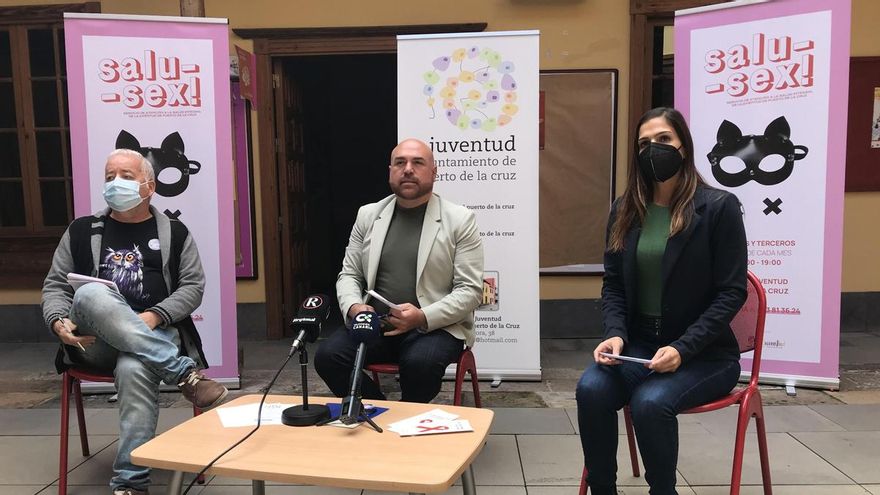
Cross port launches an innovative free and confidential sexual advice service for adolescents and young people that aims to work to improve the physical and mental health of this group, promote tolerance and equality, and help prevent any type of violence. This initiative, called Salu-Sex and coordinated by the Diversas collective, will work in person at the house of youthby appointment through phone number 633 813 624but will also respond to all queries and concerns received through instant messaging applications WhatsApp and Telegram in that same number. Initially it will be available the first and third Tuesday of each month, from 5:00 p.m. to 7:00 p.m..
The mayor of Porto Marco Gonzalez (PSOE); the coordinator of the LGTBI* Diversas collective, Fran Barrosoand the councilor for the Youth area, Noemi Fernandez (PSOE)were in charge of presenting this Wednesday, March 23, 2022, this initiative aimed at all adolescents and young people in the tourist city, “whether or not they belong to the collective LGBTI», made up of lesbians, gays, transsexuals, bisexuals and intersexuals.
Salu-Sex arises from the experience of Various in the secondary education centers of the region, where its professionals and volunteers have detected important deficiencies and needs among the youngest. Naomi Fernandez He pointed out that “although they have access to thousands of videos through their mobile phones, all this information does not help advance equality or prevent sexually transmitted diseases or unwanted pregnancies.” For the mayor, “with Salu-Sex we want, once again, to place the municipality in the forefront of comprehensive health care for the young populationso that they can receive first-hand information and advice.
This service aims to become an alternative, until now non-existent, so that young people from Porto can convey all their concerns or doubts to the team that will develop this comprehensive health project. As he valued Fran Barroso“the pandemic has taught us that we must articulate all possible mechanisms to attend to the health, in all its facets, of the most vulnerable people. Young people also demand spaces where they can talk about their sexualitymeet people with the same concerns or realities, and receive guidance on issues related to their sexual relationships or, simply, with their way of relating to others».
“We are in a historical health, economic and social crisis; at the most complicated time for many people’s lives, and that is also leaving its mark on mental health. the pandemic it has complicated, in many cases, social and family relationships, and this has generated new difficulties. In this context, also of the growth of social networks and the distortion of relationships with others, we are going to work to promote healthier sexuality», stressed the mayor of Porto.
“I hope this idea expands”
The mayor of the city of Puerto de la Cruz, Marco González Mesa (PSOE), was yesterday very satisfied with the launch of a “pioneering and necessary” service such as Salu-Sex, which tries to provide a professional response to problems which, in many cases, have been aggravated due to the collateral effects of the Covid-19 pandemic on society and, especially, among adolescents and young people. “Puerto de la Cruz is once again a pioneer municipality in the implementation of this service, through the Diversas collective, and we hope that the example will spread and we will soon see similar initiatives in other towns on the island. Hopefully this idea expands to become something regional or, why not, in an insular area, with the support of other institutions,” said Marco González during the press conference held in the central courtyard of the Casa de la Juventud
This pilot project, which begins to work today, will have a first stage until December 2022, although the intention of the Porto City Council is to give it continuity in the future and encourage its growth and expansion. For Fran BarrosoSalu-Sex can help create new meeting spaces between young people, to fight “against all kinds of violence” and work to recover, “why not”, the figure of youth mediators that could once again be key in the future, “for their work in the real context among equals.”















